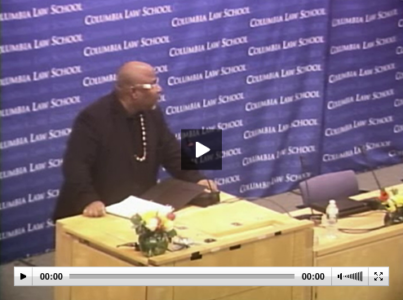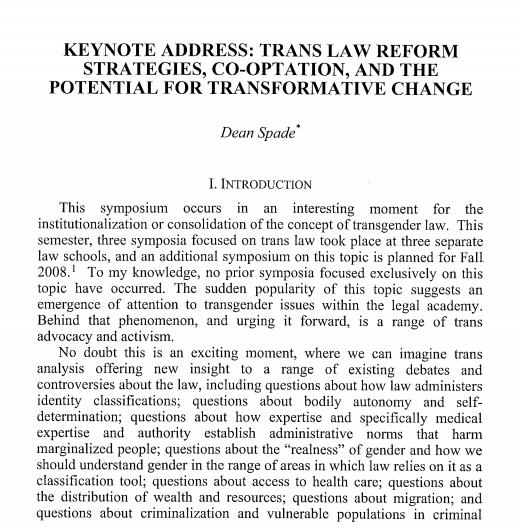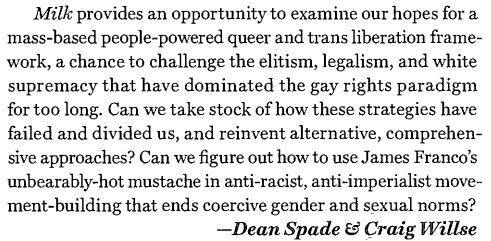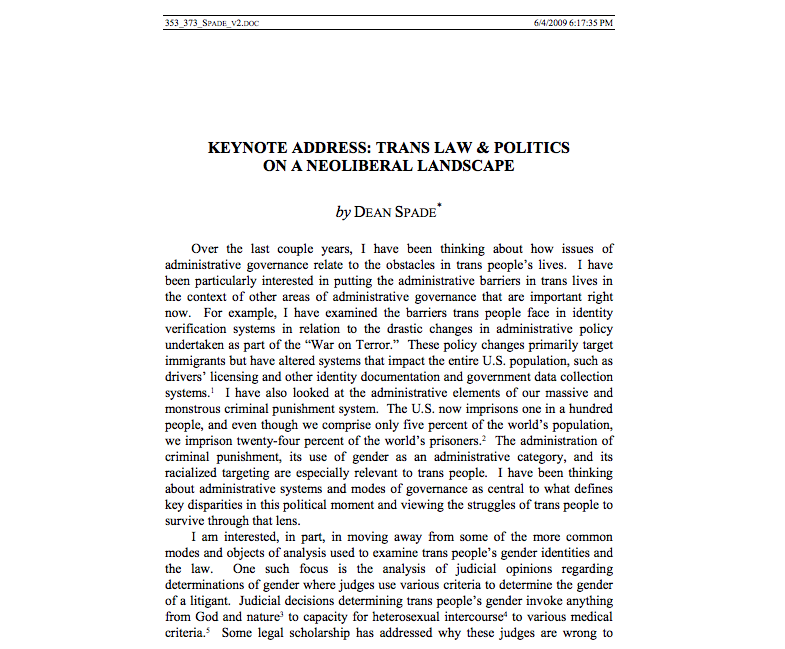Intersectionality by Design: Epistemologies, Disciplines, and Discourse
Bodies of Law: A Panel at the Columbia Law School Symposium Honoring Judith Butler
Dean Spade at the Silver Platter, Los Angeles
Keynote Address: Trans Law Reform Strategies, Co-Optation, and the Potential for Transformative Change
I wrote “Trans Law Reform Strategies, Co-Optation, and the Potential for Transformative Change” in Women’s Rights Law Reporter in 2009. You can read it here.
In the News: Tyrone Boucher and Dean Spade, Cocreators of Enough
 Tyrone Boucher and Dean Spade
Tyrone Boucher and Dean Spade
Cocreators, Enough
“This whip-smart, social-justice-minded pair has created a welcoming forum for the most taboo of subjects: wealth, class, and what it feels like, day-to-day, to resist capitalism.”
In the News: Change Agent Dean Spade
Exile and Pride: Afterword to the 2009 Edition
 Here is the afterword I wrote to the 2009 edition of Exile and Pride: Disability, Queerness, and Liberation by Eli Clare.
Here is the afterword I wrote to the 2009 edition of Exile and Pride: Disability, Queerness, and Liberation by Eli Clare.
White Knight, co-authored with Craig Willse
Keynote Address: Trans Law and Politics on a Neoliberal Landscape
I wrote “Keynote Address: Trans Law and Politics on a Neoliberal Landscape” in Temple Political and Civil Rights Law Review in 2009. You can read it here.
Abstract
These edited Keynote remarks from the Temple Political and Civil Rights Law Review Symposium on transgender law address how questions of law reform strategy relate to critical understandings of neoliberalism. The paper addresses questions of administrative governance, identity documentation, the relationship between law and social movements, and questions of economic and racial justice as applied to transgender politics.





